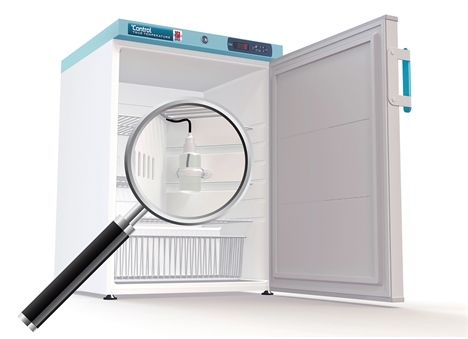01.08.16
How to Keep Your Vaccines Stored Safely
As headlines regarding the NHS, GP Practices and healthcare establishments continue to dominate the news, the emphasis on over-spending, wastage and the improvement of facilities as well as staff training has never been more important. And with flu season rapidly approaching, Carolyn Holland, product marketing manager at Lec Medical, gives her advice on how healthcare professionals can be fully prepared in order to effectively store and monitor the hundreds of thousands of vaccines safely to ensure that they are fully effective and there is no unnecessary product loss.
Vaccines alone cost the NHS approximately £200m a year and estimations suggest that even if each practice lost just one dose of Pediacel vaccines every month, it would cost the NHS an additional £4m a year*. It’s easy for this to happen – inappropriate storage facilities, poor cold chain distribution or a simple lack of checking and monitoring the temperature of the refrigeration system, can all lead to extremely costly losses of valuable vaccines and medicines alike.
To avoid this, the first step is very simple – all healthcare establishments providing such vaccines and medicines must have specialised medical refrigerators in place – a domestic fridge is completely inappropriate for use and will lead to serious consequences if used. A specialist medical refrigerator should also only be used for specified pharmaceutical products, such as vaccines and should never be used to store staff food or drink. It’s also important to note that a trained, allocated member of staff should be responsible for the care of the vaccines and should carry out frequent monitoring and checks of both the vaccines themselves and the refrigerator appliance. However, every member of staff should have a high standard of awareness of the importance of medicine storage and management.
The Green Book**, Public Health England which details the safety precautions, rules and regulations on immunisation for public health professionals, states that trained member(s) of staff should adhere to the four Rs: Read, Record, Reset and React when dealing with vaccines and medicines.

The appointed member of trained staff will need to carry out and record daily quantity and temperature checks. There is often a danger that the refrigerator’s air temperature is checked, but this is actually unrepresentative of the vaccines true temperature. For this reason, I would strongly recommend that establishments purchase a refrigerator with a secondary temperature probe that mimics a vaccine vial, so that a realistic and true temperature of the vaccine itself can also be recorded. It will provide greater accuracy, give additional peace of mind and will enable any anomalies in temperature variations to be cross-checked with the appliance’s air temperature readings.
Air temperature can be an excellent initial indication if there is an abnormal variation, i.e. the temperature drops to either below +2ºC or above +8ºC. If this is the case it is essential that the refrigeration units are alarmed to notify members of staff. This then allows the staff time to resolve the problem as quickly as possible, before any unnecessary losses occur. The actual temperature of the fridge’s stock can then be checked through the secondary temperature probe which will indicate if the drop in air temperature has caused any damage to the vaccines themselves.
Following simple safety precautions is crucial when you’re dealing with such vital and valuable contents. Vaccine stock should be audited and recorded at least every month, with audit records of stock and temperature management shared with the local screening and immunisation teams. Little things such as making sure that there is no build-up of ice or whether the fridge is overstocked are all safety measures that can be undertaken daily, in addition to the larger scale temperature monitoring, recording and carrying out of regular health checks on all refrigeration units.
There are a number of information sources where practices can find the exact guidelines on the correct storage equipment to use (as well as on the entire cold chain process), such as Public Health England and the Care Quality Commission websites. It is imperative that healthcare professionals are fully aware of the correct procedures and processes set out by these official bodies for maximum storage safety.
*Source: ‘The Protocol for Ordering, Storing and Handling Vaccines’; Public Health England, UK Government
**Source: The Green Book: Information for Public Health Professionals on Immunisation; Public Health England